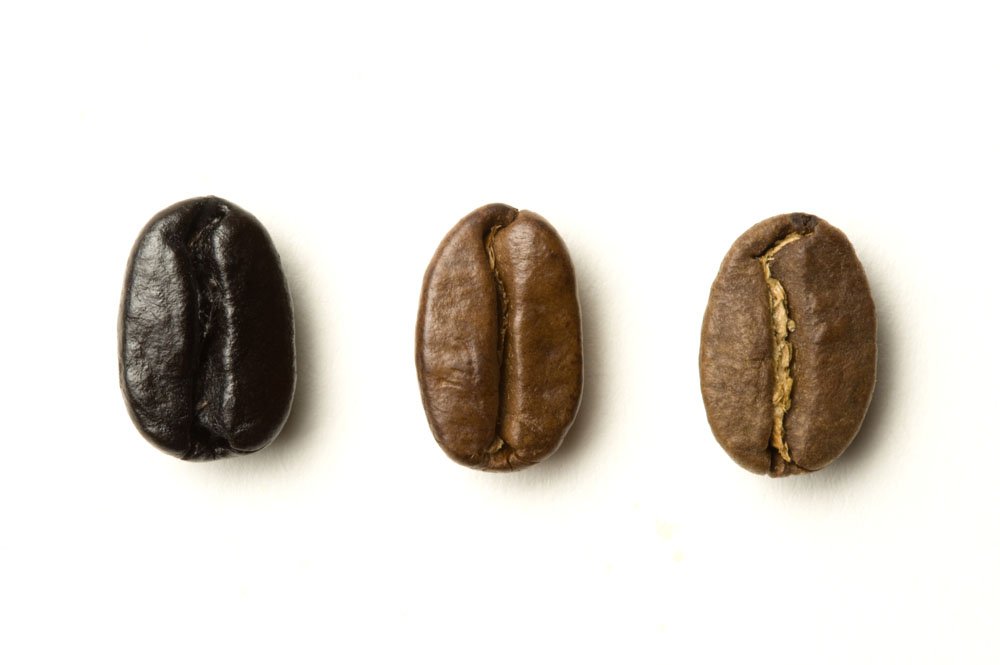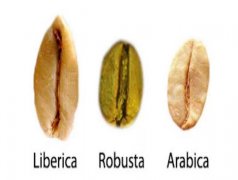Puerto Rico Coffee Bean Flavor description, Development History, Distribution of planting varieties in producing areas

For professional baristas, please follow the coffee workshop (Wechat official account cafe_style)
Puerto Rican coffee flavor
Any kind of coffee will be given a unique flavor because of its origin, just like different music styles will always give you different feelings. Yaoke coffee in Puerto Rico has all the characteristics of gourmet coffee. Its acidity is very stable, full of particles, complete flavor, and rich aroma. The reason why Yaocote chose coffee beans to be better than other producing areas on the island is that it is grown in high-altitude mountain areas, so it grows slowly and has rich fruit flavor, and it uses ancient coffee tree species, which have a unique flavor despite less yield. this is incomparable to some new tree species. Due to the abundant rainfall, rich soil and high-altitude microclimate zone, Yaoke coffee has all the qualities that gourmet coffee should have. Of course, Yaoke coffee is inseparable from the hard work of those coffee workers, who manage the whole process from planting coffee seedlings to post-harvest treatment.
Coffee development in Puerto Rico
In 1736, the first coffee tree was introduced to Puerto Rico from Martinique. Since then, Puerto Rico has become the base for producing the highest quality coffee in the world. The unique taste chosen by Yaocote has also become the object of admiration of coffee experts all over the world. Most of the earliest coffee trees were planted by immigrants from Corsica. About 160 years later, the coffee industry in Puerto Rico has an extremely optimistic outlook, ranking sixth in the world in terms of total exports, and most of their coffee is shipped to Europe, including France, Italy and Spain. Coffee farms in Puerto Rico flourished until the 19th century, but unfortunately, the rise of sugarcane and drug farming and the effects of hurricanes and wars lagged Puerto Rico's coffee industry.
Today, Puerto Rican coffee is exported to all parts of the world. As the coffee in this country is generally carefully cultivated, it is pure, fragrant and granular, among which the best is among the world's famous brands. The best coffee is Yaocote (Yauco Selecto), which means "Selecto". Grand Lares Yauco is produced in the southwest of the island, while Lars coffee is produced in the south-central part of the island.
At present, Puerto Rico Yaoke Special Coffee has become one of the most famous coffee beans in the world. It is as famous as Kona Coffee beans in Hawaii and Blue Mountain in Jamaica.
Puerto Rico Yuco
Puerto Rico Yanco selecto AA
◎ producing area (Yanco)
◎ raw bean treatment water washing type
The coffee with the best flavor of ◎ is "Yauco Selecto" (Selecto), which means "pick".
Kurt chose a fascinating coffee with a full flavor, no bitterness, smooth and delicate flavor, creamy texture and refreshing drupe flavor, extremely sweet and soft.
◎ Puerto Rican coffee is carefully cultivated, pure and fragrant, with large granules, among which the best is among the world's famous brands.
Farmers here have been using a method of ecological protection and intensive cultivation, using only some low-toxic fertilizers and chemicals, and taking measures to plant mixed crops, so as to make the soil more fertile.
When it's time to pick coffee beans, people walk back and forth between coffee trees, picking only fully ripe coffee beans.
The coffee beans selected by Yukot are kept in shells until they are shipped and the skins are not removed until the order is shipped to ensure the best freshness of the coffee.
Relevant staff of the United States government, such as FDA and USDA, will be present when the coffee beans are to be delivered.
Their job is to monitor whether producers comply with federal laws.
Yukot's choice is fascinating coffee, which has a full flavor, no bitterness, rich nutrition, rich fruit, and is worth tasting.
◎ Puerto Rico Yauco coffee
The famous Puerto Rican gourmet coffee has an annual output of only 3000 bags, with a smooth and delicate flavor, creamy texture and fresh drupe flavor, extremely sweet and soft.
Yaoke Puerto Rico Yauco, Puerto Rico
Yaoke, Puerto Rico and Jamaica are both Greater Antilles, located in the Central American Atlantic Ocean, is a well-known island bean-rich country. This batch comes from the Central Mountains of Puerto Rico, with an average elevation of 914 meters. Puerto Rican coffee has a history of more than two hundred years. Coffee was grown in 1736. At first, coffee was not the main cash crop, but mainly sugar crops. Because of the unrest in Europe, the residents of Corsica Island in the French Mediterranean moved to Puerto Rico around 1800. At that time, the valley had already been occupied by Spanish immigrants, so they chose to settle in the southwest mountains of the island, located near the city of Yaoke. In order to survive, they began to grow different crops. Coffee cultivation brought them a good income, and the coffee industry became the main local export cash crop in 1860. Yaoke is also a well-known coffee in Taiwan in the early days, but in recent years it has been quite rare because it has changed from domestic sales to orientation.
Yaoke AA Puerto Rico Yauco AA Washed, Puerto Rico
■ country: Puerto Rico
■ producing area: Yaoke
■ altitude: 914m
■ treatment: washing
■ level: AA
■ varieties: bourbon, Puerto Rico (Typica 401)
■ flavor description: chocolate, cream texture, BODY thick, lingering finish
Yukot, located on the island of Puerto Rico, is a good bean on a par with Cana beans and famous Caribbean beans (such as Jamaica Blue Mountain & # 39; Cuban Crystal Mountain).
This batch of Yukot selected Yauco Selecto AA was harvested in February 2005. after the raw beans were processed and dried (and parchment), they were stored for 60 days as resting before they were exported, of course, the taste will be more mature-this time the high-quality beans came in together with the Nicaraguan Monimbo Manor beans, PNG Sigri AA and the rare Sigri PB (remember when I got the PB sample in Seattle), which was the highlight of the coffee competition in the country in 2002? These beans will be put on the shelves after cup testing one after another.
The main coffee producing areas in the Caribbean were hit by a number of hurricanes in 2004, so the coffee harvest was affected, resulting in a shortage of goods. Yukot chose less than 15 containers a year, so this year's raw beans can find some defective beans. According to Yuke, which just arrived on June 1st, although it is AA, there is about one defect in the inspection results of 350g raw beans. This year's Seattle SCAA Show There are not as many national exhibitors in this area as in previous years, which is also the result of the hurricane. And this batch of raw beans of Yuke are not boubon species, but Porto Rico varieties species, and their appearance is quite similar to the traditional typica species. If you have Yukot beans selected in previous years, you might as well compare them with each other. The appearance of raw beans will be obviously different, while the cup test is still typical [Yuke style].
The cup test data are as follows:
Producing area: the town of Yauco, Puerto Rico (the mountains of southwest Puerto Rico)
Manor: San Pedro, Santa Ana
Grade: AA harvest time: end of March 2005
Variety: Porto Rico varieties (no new commercial varieties are adopted)
Treatment: appearance / defects of washing method: green, 0d/350g
Cup test: (cinnamon baking, that is, cinnamon baking, Osher M0, that is, an explosion in the middle of the pot, baking time of 10 minutes; Japanese Royal Fuji one kilogram baking machine)
Dry aroma: oil, drupe, sweet spice, with hints of flowers and vanilla
Wet fragrance: sweet milk, tea, stone fruit, citrus sweet, caramel sweet
Sipping: sweet cocoa, sticky body fat, long-lasting sweet caramel aromas of citrus and other fruits,
Cup test (2): medium baking, Osher M baking degree, just into the second explosion pot, baking time 15 minutes
Dry fragrance: sweet nuts, sweet fruit, sweet spices, greasy flavor, mint cool fragrance
Wet fragrance: sweet cream, sweet cocoa nuts, a little scented tea, spicy sweet
Sipping flavor: body creamy oily, citrus ripe sweet and sour, cocoa chocolate, long-lasting nose aroma-
I would like to mention the basic information about Yuko. If you have read it before, the following information can be skipped.
Yauco Selecto AA is a high-quality coffee located in Puerto Rico. It is a famous island bean, on a par with Hawaiian Cona beans and Caribbean beans.
Puerto Rico means "port of abundance". Coffee has been introduced to Puerto Rico for more than 250 years. Spain began to colonize and grow coffee in 1736. By the 19th century, coffee had become the second industry on the island. In the early 19th century, immigrants from the French island of Corsica were forced to farm in the high mountains of the southwest and decided that coffee was the main crop; the arable land was mainly around a town called Yauco. In 1860, there were two major events that established Yukot's position in bean selection.
The first thing: the Mariani family, for the first time, used the cotton gin machine to screen the cotton fiber to remove the shell of the coffee fruit, which had a revolutionary impact.
Second, the leader of Corsica growers, who financially supported the beans in the region, shipped them back to Europe's main coffee trading center and recommended them to buyers, which quickly received a wide response. Their hard work finally comes at a price!
In the 1860s, Puertorrican coffee, especially from the Yauco region, won the reputation of premium coffee, and emperors and queens all over Europe were regarded as the best coffee! High society and widely drunk! Coffee-producing countries are also scrambling to emulate Puerto Rico's planting method. At that time, the production of this island ranked sixth in the world! (in other words, in Europe, gluttons started tasting boutique coffee a hundred years ago.)
Two devastating hurricanes hit Puerto Rico in 1898. The hurricane damaged the coffee industry and the war between the United States and Spain began in the same year, after the war with the Philippines and Cuba. Once again, the US government is only more interested in the sugar industry (like Spain at that time). The double whammy is that European countries no longer regard Puerto Rican coffee as a colonial product. Fortunately, in the first half of the 20th century, Cuba, an emerging market, bought most Puerto Rican coffee, but Yukot continued to sell to Europe to supply some glutton.
In 1917, Puerto Rico islanders became American citizens, which means that people enjoy a minimum wage and that coffee is as expensive to grow as Kona in Hawaii. The labor cost in Puerto Rico must meet the standards of the United States government and the environment in which coffee is grown, as well as the environmental protection policy of the United States, which actually increases the production cost in Puerto Rico! Under the high cost structure, the factors supporting the coffee industry in Puerto Rico are:
(1) because this island produces high-quality coffee! Under a free economy, if the quality is poor and uncompetitive, the local market can buy imported coffee, and it is even more difficult for the poor quality to be exported to other countries.
(2) the protection and care of the government, as there are traditional and high-quality crops, the government policy also encourages and assists the continuous cultivation of coffee.
(3) with the support of the residents of the island, due to the increase in national income and the developed tourism industry, all the coffee produced on the island was sold domestically during the 25 years from 1965 to 1990.
The reason why Yukot chooses beans better than other producing areas on the island is that:
1. it is planted in the highest mountain area of the island, so it grows slowly and the fruit is rich in flavor.
2, only use bourbon and the old species of this island, although the yield is less, but in the Yauco mountain area, the flavor of the old species is not good.
It will have the disadvantage of poor flavor like the new commercial species.
3, abundant rainfall, rich soil and located in the best high-altitude microclimate area of the island
4. The two manors are self-made in the whole process from planting coffee seedlings to post-harvest treatment, and the quality control is very strict.
The King's Coffee-Puerto Rico Coffee A country in South America called Puerto Rico grows the best coffee in the world. It is also called the King's Coffee. Why does it have this honor? It is understood that Puerto Rican coffee has long been loved by European royals and aristocrats, and it is designated by the Vatican as the royal coffee, and it is recognized by international coffee appraisers as the third largest coffee in the world. Puerto Rico coffee is produced in Puerto Rico, a small country in South America, made up of a series of scattered islands.
A country in South America called Puerto Rico grows the best coffee in the world. It is also called the "King's Coffee". Why does it have this honor? It is understood that Puerto Rican coffee has long been loved by European royals and aristocrats, and it is designated by the Vatican as the royal coffee, and it is recognized by international coffee appraisers as the third largest coffee in the world.
Puerto Rican coffee producing area
Puerto Rico, a small country in South America, is made up of a series of scattered islands, each season like spring, luxuriant flowers and plants, like a chain of beads scattered by God, you can see the brilliance of heaven at the slightest turn. Puerto Rico Yaoke's specialty coffee, grown on three farms in the southwest of the island, is fragrant and has a long aftertaste. This kind of coffee is very expensive and its flavor is comparable to that of any other coffee variety in the world. In the Yaoke area, the coffee is owned and operated by the local planter.
The mountain climate here is mild, the plants have a long mature period (from October to February), and the soil is of high quality clay. Some old varieties of Arabica coffee beans are grown here, although the yield is lower than other varieties, but generally of high quality. People here have been using an ecological and intensive planting method, using only some low-toxic fertilizers and chemicals, and taking mixed crop planting measures to make the soil more fertile. When it comes time to pick coffee beans, people walk back and forth between coffee trees, picking only fully ripe coffee beans, and then wash them in a roller device for 48 hours.
Important Notice :
前街咖啡 FrontStreet Coffee has moved to new addredd:
FrontStreet Coffee Address: 315,Donghua East Road,GuangZhou
Tel:020 38364473
- Prev

Description of the Flavor of Puerto Rico single-product Coffee Bean Development History planting Variety treatment
Exchange of professional baristas follow the coffee workshop (Wechat official account cafe_style) Puerto Rico coffee development in 1736, the first coffee tree was introduced to Puerto Rico from Martinique. Since then, Puerto Rico has become the base for producing the highest quality coffee in the world. The unique taste chosen by Yaocote has also become the object of admiration of coffee experts all over the world. The earliest coffee tree was big.
- Next

Description of Distribution and Flavor of Coffee Bean producing areas in Puerto Rico planting History
Exchange of professional baristas please pay attention to the coffee workshop (Wechat official account cafe_style) Puerto Rico Coffee producing area Puerto Rico this small South American country is made of a series of scattered islands with luxuriant flowers and flowers like spring all year round, like chains of beads scattered by God, you can see the brilliance of heaven with a little rotation. Puerto Rico Yaoke specialty coffee in three southwestern parts of the island
Related
- Detailed explanation of Jadeite planting Land in Panamanian Jadeite Manor introduction to the grading system of Jadeite competitive bidding, Red bid, Green bid and Rose Summer
- Story of Coffee planting in Brenka region of Costa Rica Stonehenge Manor anaerobic heavy honey treatment of flavor mouth
- What's on the barrel of Blue Mountain Coffee beans?
- Can American coffee also pull flowers? How to use hot American style to pull out a good-looking pattern?
- Can you make a cold extract with coffee beans? What is the right proportion for cold-extracted coffee formula?
- Indonesian PWN Gold Mandrine Coffee Origin Features Flavor How to Chong? Mandolin coffee is American.
- A brief introduction to the flavor characteristics of Brazilian yellow bourbon coffee beans
- What is the effect of different water quality on the flavor of cold-extracted coffee? What kind of water is best for brewing coffee?
- Why do you think of Rose Summer whenever you mention Panamanian coffee?
- Introduction to the characteristics of authentic blue mountain coffee bean producing areas? What is the CIB Coffee Authority in Jamaica?

